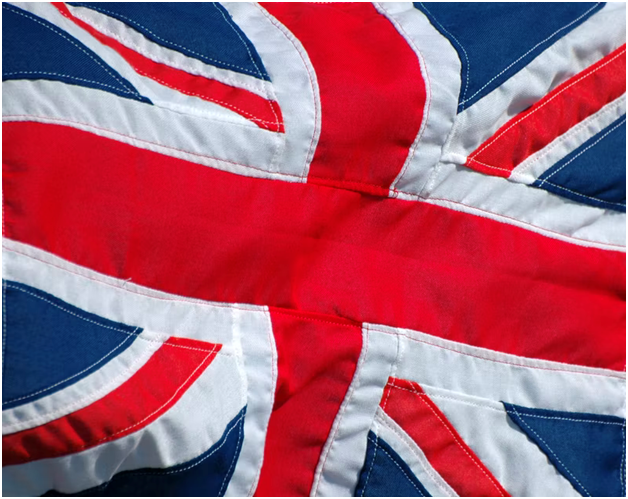In this article, I will give you all the recommendations you need to take into account if you are from abroad and want to travel to the UK.
I will give you detailed explanations of what you need to know.
You must complete the UK passenger locator form
What is the passenger locator form?
The UK Passenger Tracking Form is a new guideline for all travelers to complete before arrival in the UK. The purpose of this document is to help prevent the spread of the COVID-19 virus.
The UK passenger tracking form is not the same as a visa. A visa may be required for your nationality and this must be obtained in addition to this form.
If you want to know more about the PVT form, visit the website: passengerlocatoruk.co.uk who offer their services to help you with your trip to the UK on all documentation, PVT, but they also have services such as:
–Support for Evisa application and passenger tracking.
–Concierge service with the personal assistant.
–Flight and hotel booking platform.
If you do not complete the form, you will be fined £100, and the fine can be as high as £3,200 if you give the wrong address. If you are not a British or Irish citizen, you may not be allowed to enter the UK.
What are the different types of visas that allow you to enter the UK?
If you intend to visit the UK for any length of time, you need a visa. For example, non-EEA citizens must apply for a visitor’s visa if their stay is less than 90 days, while EEA citizens can enter the country without a visa for up to 90 days.
You can enter the UK using a range of different visas, including short and long-term visas. The type of visa that suits you best depends on why you are entering the country and how long you are staying.
The UK offers several types of visas, such as work visas, study visas, family visas, tourist visas, and business visas. A UK visa can also lead to indefinite leave to remain, which is a key step on the road to UK citizenship.
How long does it take to process a visa in the UK?
It takes between 6 weeks and 3 months for a UK visa application to be processed and for you to be notified of your decision.
It varies depending on the type of visa you are applying for. Your circumstances play an important part in determining how long the application process will take. For example, the processing time for a standard visitor visa application is likely to be much shorter than for a complex dependent adult visa application.
What documents do you need to have with you before traveling to the UK?
The rules for COVID-19:
The rules to follow in the case of coronavirus (COVID-19) depend on :
-Whether you are up to date on vaccinations
-Where you were 10 days before your arrival
The different types of vaccine granted by the UK against COVID-19 are:
-AstraZeneca Vaccine
-Pfizer/BioNTech Vaccine
-Modern Vaccine
The documents you need to take depend on where you are coming from:
If you are from the European Union or Switzerland, Norway, Liechtenstein, and Iceland you can use the following documents:
-A national identity card issued by your EU country and the countries I just mentioned (Liechtenstein, Norway, Switzerland, and Iceland) can use their national cards too.
-Your passport.
If you come from outside Switzerland, Norway, Liechtenstein, Iceland and the European Union you must provide these documents:
-A valid passport is required to enter the UK. It must be valid for the duration of your stay.
-Depending on your country of origin, you may also need a visa.
What happens if you travel with children?
Border officials may ask for proof of a family relationship between you and the children traveling with you.
You must prove this with various documents:
-You will need to bring a divorce decree or marriage certificate if you are the parent but have a different surname to the child.
-Proof of your relationship with the child, such as a birth certificate or adoption papers.
-an official letter from your child’s parents authorizing you to travel with them and giving their contact details, if you are not the parent.
Which countries require a visa to enter or transit the UK?
List:
-Afghanistan
-Albania
-Algeria
-Angola
-Bangladesh
-Belarus
-Burundi
-Cameroon
-China
-Congo
-Congo Dem. Republic
-Cyprus
-Egypt
-Eritrea
-Eswatini (Swaziland)
-Ethiopia
-Gambia
-Ghana
-Guinea
-Guinea-Bissau
-India
-Iran
-Iraq
-Ivory Coast
-Jamaica
-Kenya
-Kosovo
-Lebanon
-Lesotho
-Liberia
-Libya
-Malawi
-Moldova
-Mongolia
-Myanmar
-Nepal
-Nigeria
-North Macedonia
-Pakistan
-Palestinian Territories
-Rwanda
-Senegal
-Serbia
-Sierra Leone
-Somalia
-South Africa
-South Sudan
-Sri Lanka
-Sudan
-Syria
-Tanzania
-Turkey
-Uganda
-Venezuela
-Vietnam
-Yemen
-Zimbabwe
The Schengen visa covers a total of twenty-six countries in Europe
-Austria
-Belgium
-Czech Republic
-Denmark
-Estonia
-Finland
-France
-Germany
-Greece
-Hungary
-Iceland
-Italy
-Latvia
-Liechtenstein
-Lithuania
-Luxembourg
-Malta
-Netherlands
-Norway
-Poland
-Portugal
-Slovakia
-Slovenia
-Spain
-Sweden
-Switzerland.
What are the different types of accommodation for foreign students?
There are different types of accommodation for foreign students in particular:
Private hire:
Private rental accommodation is popular with most students. This accommodation is completely self-contained and it is important to understand that you are responsible for all bills and for keeping the accommodation clean.
Private residences:
Entirely privately funded, private residences tend to be more expensive than university residences. In return for this extra expense, residents can expect a more modern living environment.
University residence:
Accommodation is guaranteed for international students in the halls of residence, who will usually be allocated a private room. All bills, including wi-fi, are included in the rent.
I hope I have taught you a lot and as I said earlier you should check passengerlocatoruk.co.uk their links are at the beginning of the article if you want to know more before traveling to the UK.
